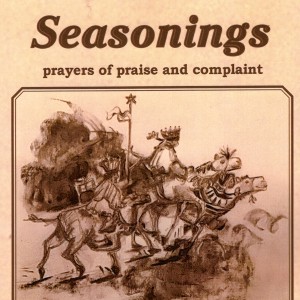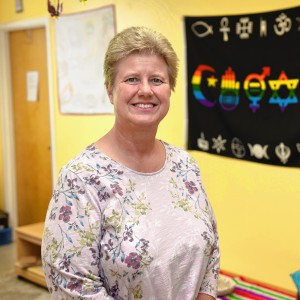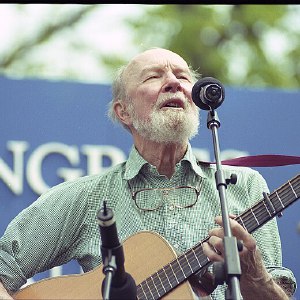Honoring a local luminary’s legacy: Juanita Nelson centennial celebration taking place Aug. 17 through 20
| Published: 08-09-2023 10:58 AM |
(Editor’s note: This is part one of a two-part story about the late Juanita Nelson, the longtime Deerfield resident whose 100th birth anniversary will be celebrated Aug. 17 through 20 near her former home. Recorder columnist Eveline MacDougall interviewed Nelson and her life partner, Wally, over a 30-year period for numerous publications and projects; she also intimately collaborated with the couple agriculturally, domestically and artistically. MacDougall drew on extensive interviews and personal memories to contribute to this story.)
Juanita Nelson loved inviting friends to her annual Corn Party and, every year – no matter the texture or flavor of that season’s homegrown crop – she proclaimed, “Best corn we’ve ever had.”
Nelson and her life partner, Wally, lived and farmed for decades atop Woolman Hill, just over the Greenfield line in Deerfield. Though the couple chose not to legally marry, their nearly 60-year bond came to represent for many the very embodiment of devotion. The Nelsons were also remarkably committed to simple living, right livelihood, self-sufficiency and community building.
Though both Nelsons are now deceased, their legacy will be honored at the Woolman Hill Quaker Retreat Center in Deerfield during several days of celebration next week. Events will run from Thursday, Aug. 17 (the 100th anniversary of Juanita Nelson’s birth) through Sunday, Aug. 20, under the auspices of the Nelson Legacy Project (NLP) and – although not officially organized or sponsored by the Woolman Hill non-profit organization – the location is fitting.
In 1974, the Woolman Hill Board of Directors granted the Nelsons a lifetime, non-transferable lease on a parcel of land where they could build an off-the-grid home and pursue small-scale farming and other modes of self-sufficiency, an idea proposed by Shelburne Falls resident Randy Kehler, who met the Nelsons during his late teens.
Arkansas native Wally Nelson, the eleventh of twelve children, began life in 1909 in a sharecropping family; for Juanita, however, farming was a far cry from where she started out. Born Juanita Morrow in Cleveland, Ohio, she grew up exclusively in urban settings. Her parents had fled the South, as did millions of other African Americans who hoped to escape the horrors of Jim Crow racism by seeking better lives in northern cities between roughly 1910 and the 1970s in what came to be known as the Great Migration. While the north often proved just as threatening to Black Americans as the south, nonetheless many thousands established admirable homes, businesses and communities, despite steep and harrowing challenges.
Early on, Juanita did not imagine she would choose a life of farming and physical toil. Like Wally, Juanita initially regarded agricultural work as the curse of her enslaved ancestors. Yet after meeting Wally in her mid-20s and learning that they shared many philosophies, she began exploring ways in which they could increasingly separate their lives and actions from what they considered practices of greed and overconsumption.
For years, the couple opted for freelance employment to steer clear of mainstream structures, including the withholding of federal taxes. The Nelsons did not wish to contribute to the U.S. defense budget, which they viewed as intertwined with violence perpetrated against people and nature around the world, while also leading to poverty and unmet basic needs for many. They figured that if they produced or bartered for the majority of their needs, they might significantly decrease their direct involvement with oppression.
Article continues after...
Yesterday's Most Read Articles
 Hotfire Bar and Grill to open Memorial Day weekend in Shelburne Falls
Hotfire Bar and Grill to open Memorial Day weekend in Shelburne Falls
 Charlemont planners approve special permit for Hinata Mountainside Resort
Charlemont planners approve special permit for Hinata Mountainside Resort
 $338K fraud drains town coffers in Orange
$338K fraud drains town coffers in Orange
 Deerfield Planning Board OKs Hamshaw Lumber expansion
Deerfield Planning Board OKs Hamshaw Lumber expansion
 My Turn: Quabbin region will never see any benefits from reservoir
My Turn: Quabbin region will never see any benefits from reservoir
 September half-marathon to be Tree House Brewing Co.’s first 5,000-capacity event
September half-marathon to be Tree House Brewing Co.’s first 5,000-capacity event
Wally Nelson died in 2002 at age 93 and Juanita Nelson died in 2015 at 91. The couple maintained a daily routine of physical labor well past retirement age, aided by a coterie of younger friends and admirers. Having taken up farming in midlife, in their final decades they raised organic vegetables, fruits, and nuts for their own use and for sale at local farmers’ markets and eateries. They made soap and, for a time, kept bees. They maintained a two-seater outhouse, drew water from a well, heated and cooked with wood, and lit their home after dark with kerosene lamps. A battery-operated radio and a flashlight were two of their few modern tools.
The Nelsons were both enormously self-sufficient and deeply involved with community projects. They helped found the Greenfield Farmers Market and several other groups, including the Valley Community Land Trust and the Pioneer Valley Tax Resisters. Later in life, Juanita Nelson was the impetus behind the Free Harvest Supper, now a popular annual Greenfield festival.
In addition to advocating for local foods and farmers, the Nelsons provided philosophical inspiration to many. While working the land in their small plot known as “The Bean Patch,” they welcomed people of all ages from around the region, nation and world, sharing ideas and proposals while digging, weeding and harvesting.
One ongoing collaboration that they were particularly fond of was with Deerfield Academy students. Transported in buses or vans, student groups would arrive at the Nelsons’ for hands-on farming experiences and pearls of wisdom. Many DA students – domestic and foreign – lived highly privileged, even posh, lives; for some, visiting a college-educated African American couple who chose to live without electricity, running water, phone, and many other amenities came as a shock.
The Nelsons became models for and mentors to many such young people, including some who initially recoiled from the prospect of getting their hands dirty. It’s not unusual to encounter middle-aged people who, in their youth, developed intense admiration for the Nelsons and who gratefully credit the couple with emphasizing the concept that living simply leads to healthier outcomes for all concerned.
The Nelsons famously enjoyed a vignette about a South Korean DA student determined to get to The Bean Patch one day, despite challenges. When a school assignment delayed him so that he missed the van ride, the lad decided to run nearly three miles to join his group. He could be heard yelling – as he huffed and puffed up steep Woolman Hill – ”Wal-leeee! Don’t worry! I’m coming! Wal-leee! Wait for me! I’m almost here!” The Nelsons shared the story many times, tag-teaming the telling as one or the other dissolved into helpless laughter.
Today, organizers who comprise the Nelson Legacy Project see to it that the couple’s commitments and philosophies continue to be shared and celebrated. In addition to maintaining a website (www.nelsonhomestead.org), the group helps with upkeep at the Nelsons’ former home, which has reverted to Woolman Hill usage along with the land they farmed. NLP maintains a garlic patch on-site in memory of Juanita, who was locally famous for her vigorous, flavorful crop.
Shortly before his death a couple of years ago, local well-known physician Dr. William Callahan recalled during a Recorder interview, “Juanita Nelson came in for an appointment and offered me some of her homegrown garlic in partial payment. I accepted, and planted some. Thanks to her, I continue to grow some of the best garlic I’ve ever had.”
An NLP member and tender of Nelson garlic, Aaron Falbel, will be one of the presenters at the Juanita Nelson 100th Birthday Celebration and Gathering. Falbel farmed with and for the Nelsons over many years, and will present a session about gardening. Other longtime associates, Jenny Wright and Stan McCumber, will travel from their New Hampshire homestead to share memories of the Nelsons as well as their experiences of living a similar lifestyle. The Nelsons admired Wright and McCumber for their soapmaking, woodcarving, potato print art, textile creations, and other talents.
The four-day gathering will include workshops on such topics as economics and justice, the history of nonviolence in the U.S., simple living, subsistence organic farming, confronting racism, nonviolent direct action, and war tax resistance. There will be performances of theatrical works by Juanita Nelson, who was a playwright in addition to a published author of prose and poetry. Noted African American actor Ingrid Askew will be a featured theatrical guest.
The Nelsons aimed to create healthier human societies and contributed significantly to American perspectives of nonviolence as solidly as the Rev. Dr. Martin Luther King, Jr., Bayard Rustin, and Dorothy Day, all of whom the Nelsons knew, as well as famed antecedents like Gandhi, Tolstoy and Thoreau.
Next week’s column will explore roots of the Nelsons’ resistance and courage. In the meantime, readers interested in the Juanita Nelson 100th Birthday Celebration and Gathering in Deerfield, Aug. 17 through 20, are encouraged to visit www.nelsonhomestead.org or to contact Betsy Corner, a coordinator, by phone or text, at 413-386-5559.
“There’s a fee,” said Corner, “but we don’t want economics to be a barrier. People should feel free to inquire.” Corner emphasized that people are welcome to participate for part or parts of the four-day event, but that those wishing to partake in on-site meals are urged to register.
Eveline MacDougall is the author of “Fiery Hope” and a gardener, artist, musician, and mom. Her family farms in Quebéc, now in their tenth generation on the same piece of land. eveline@amandlachorus.org.
]]>

 Speaking of Nature: Indulging in eye candy: Finally, after such a long wait, it’s beginning to look like spring is here
Speaking of Nature: Indulging in eye candy: Finally, after such a long wait, it’s beginning to look like spring is here Celebrating ‘Seasonings’: New book by veteran preacher and poet, Allen ‘Mick’ Comstock
Celebrating ‘Seasonings’: New book by veteran preacher and poet, Allen ‘Mick’ Comstock Faith Matters: How to still the muddy waters of overthinking: Clarity, peace and God can be found in the quiet spaces
Faith Matters: How to still the muddy waters of overthinking: Clarity, peace and God can be found in the quiet spaces A time for every purpose under heaven: Free sing-a-long Pete Seeger Fest returns to Ashfield, April 6
A time for every purpose under heaven: Free sing-a-long Pete Seeger Fest returns to Ashfield, April 6
